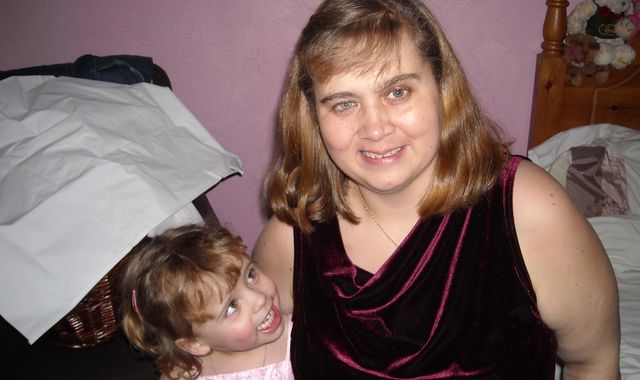
A teenager who lost her mother, aunt and uncle to a genetic condition is the first person in Europe to receive a "life-changing" drug.
Mary Catchpole, 19, from Great Yarmouth, suffers from a rare inherited disorder called activated PI3-Kinase delta syndrome (APDS), which leaves people with a significantly weakened immune system.
The condition was passed down by her mother's side of the family, with her mother Sarah dying aged 42 in 2018, while her aunt Helen died aged 12, her uncle Edward when he was 39 and her grandmother Mary when she was 48.
APDS patients are vulnerable to repeated infections, causing them to face a lifetime of antibiotics and immunoglobulin replacement therapy to prevent infections and organ damage, and a bone marrow or stem cell transplant - until now.
A new drug called leniolisib (Joenja) is a simple tablet taken twice a day and is the first ever targeted treatment for APDS.
Ms Catchpole, who is the first person in Europe to receive the medicine after it was made available on the NHS, said taking the new drug is "life-changing" as it means she can leave behind huge amounts of medication.
"I was diagnosed with APDS aged seven and it's had a big effect on my life. I had lots of cannulas when I was younger and lots of hospital trips," she said.
"I had a permanent line in the side of my body when I was younger, which they put medicine in regularly at the hospital."
Ms Catchpole added that she wasn't allowed to do much physical activity, including dancing, which she's "always loved to do". "It has been hard," said the teaching assistant, who lives with her father Jimmy, 64, and her brother Joe, 20, who does not have APDS.
The condition was identified by Cambridge researchers in 2013, with Ms Catchpole's family playing a key role in its discovery, as her mother and uncle were both patients at Addenbrooke's Hospital and were offered DNA sequencing to find out whether there was a genetic cause for their immunodeficiency.
Read more from Sky News:
Weight loss jabs linked to potentially fatal side effect
Gene therapy device could create medicines for rare diseases
The researchers found a change in their genes that increased activity of an enzyme called PI3-Kinase delta, meaning this enzyme is effectively "switched on" all the time, preventing immune cells from fighting infection.
Professor Sergey Nejentsev, from the University of Cambridge, who led the research that discovered APDS, said: "As soon as we understood the cause of APDS, we immediately realised that certain drugs could be used to inhibit the enzyme that is activated in these patients."
The new drug works by inhibiting the PI3-Kinase delta enzyme, effectively normalising the immune system of the patient.
"This new drug will make a huge difference to people living with APDS," Dr Anita Chandra, consultant immunologist at Addenbrooke's and affiliated assistant professor at the University of Cambridge, said.
Ms Catchpole says she can now look to the future with optimism and lead a normal life.
"I really want to become a dance teacher," she said. "I absolutely love my current job as a teaching assistant but I'd also like to go on some adventures as well. I've always felt different so it will be nice to feel like I belong."
There are between 40 and 50 people in England who are known to have APDS.
Experts believe the new APDS drug will work long-term in patients as long as they keep taking it, with researchers looking at the potential for the medicine to work on other, more common immune conditions.

(c) Sky News 2025: 'Life-changing' drug for teenager who lost mother to genetic condition


 'Atrocity not accident': Families of pedestrians killed by drivers running red lights speak out
'Atrocity not accident': Families of pedestrians killed by drivers running red lights speak out
 'Blade split my hand wide open': Police officer slashed in Hainault sword attack speaks out
'Blade split my hand wide open': Police officer slashed in Hainault sword attack speaks out
 Post Office: Police identify seven suspects related to Horizon scandal
Post Office: Police identify seven suspects related to Horizon scandal
 Government makes concessions to Labour rebels over welfare reforms
Government makes concessions to Labour rebels over welfare reforms



